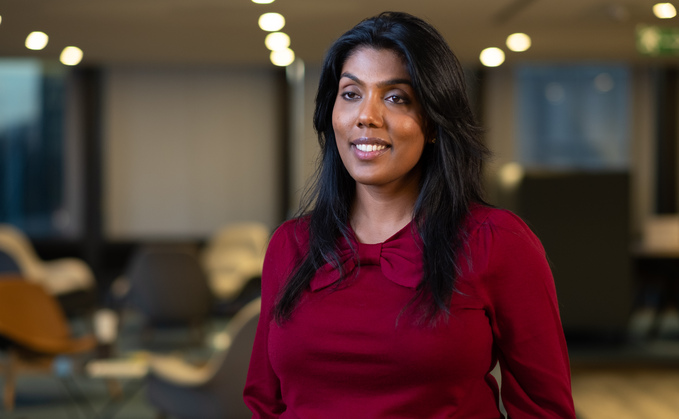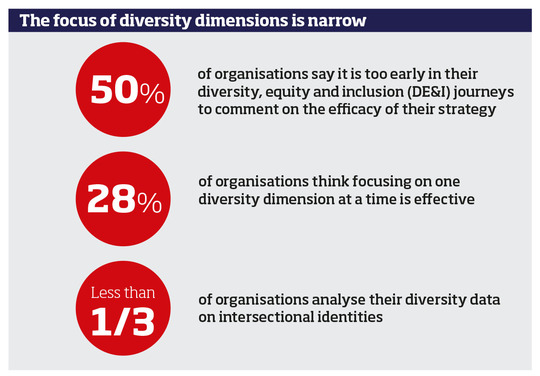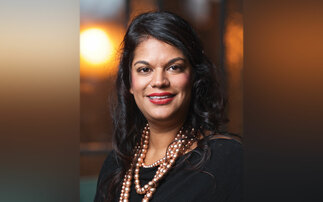
Apiramy Jeyarajah of Aviva Investors
The head of UK wholesale at Aviva Investors and Diversity Project ambassador, Apiramy Jeyarajah, talks to Lauren Mason about personal setbacks, intersectionality, and ripping up the playbook.
What is your background and how did you come to work at Aviva Investors?
I was the first member of my family to go to university. My family remortgaged their house so that I could go to private school, and that is how it started. After I graduated, I had no idea what I was really applying for but I became taken with the idea of this glamourous lifestyle in the City, and I thought this sector would earn me enough money to support my family.
I got through to the final round for a role on a company's trading floor, and one of the questions was how I would cope with being the only woman on the trading floor. This surprised me - I had no idea this would be the case; I was expecting meritocracy.
Black employees heavily discriminated against within financial services industry
I did not get the job, and in fact the feedback indicated gender-related issues.
But since then, I have progressed at companies such as ABN AMRO, RBS and HSBC - at HSBC [GAM] I built the active and passive sales teams from scratch under [former CEO] Andy Clarke. Now I head up UK wholesale at Aviva Investors.
Has this experience - particularly for the role onthe trading floor - influenced who you are and how you work today?
I have not always had an easy ride, but that diversity of thought, the resilience, the need to succeed, the willingness to take risks, the importance I place on listening to clients, are all transferable and valuable skillsets. Those experiences have also made me more diverse cognitively than I was before them.
What inspired you to become an advocate for intersectionality?
Fundamentally, as human beings, we have a need to belong. This is why you end up seeing societal divisions in places like Whitechapel or Brixton, because there is a sense of belonging for people of particular backgrounds that is not as forthcoming elsewhere.
This is true of the workplace too. For example, the generic four-stage interview process companies use to hire someone seems strange to
me, given it is used for every single person. It is not customised to the individual in that room in terms of what motivates them, what inspires them and what their individual circumstances are.
Companies ignoring gender diversity in net zero considerations
Everyone is a minority in some cross section of their lives - even a white, middle-aged man who has a ‘type B' personality, for instance.
The recruitment mindset that we have seems to stem from the days of the industrial revolution, when Henry Ford created a production line. That production line created efficiencies; employees worked within a set time frame, and they clocked in and out. The world is a very different place today and we need to adjust the way in which we work.

How does the way that we work need to be adjusted to increase inclusivity?
Intersectionality is now a huge majority of the total population today. I myself am British Sri Lankan, I am a woman and I come from a low socioeconomic background. These are only a few of my individual traits. We are all a huge sum of different moving parts.
Because we are all individuals, we need to change the way we measure success. If we do not, this will be detrimental to the commerciality of any business. Whether this is driving alpha or generating revenues; how can businesses be future-proof if they just adopt the same processes?
Scottish Widows calls for companies to promote cognitive diversity
Having a representative in different workstreams of the Diversity Project, or increasing a quota, is not enough either. How will the company do this and how will they retain their existing employees?
What you need is change and a different structure that promotes diversity of thought. It is not complex, but just for someone to change their leadership style to be empathetic and curious, and to understand what motivates them [is important]. Does it get the best out of your workforce? Yes. Does it cost anything? No.
Rhetoric around diversity has certainly increased over recent years and months. Why is there still a diversity productivity gap?
Sometimes, diversity feels like an echo chamber to me. If I publish an article about inclusion, the minorities I have connected with on LinkedIn all read it and support it; the majority do not come on the journey.
What is missing are simple things like training. Allyship is not strong enough, and while mentorship is good, we need to see sponsorship from companies. That is when it becomes advocacy.
The second powerful aspect that we need is a change in leadership style: it needs to be empathetic and, most importantly, agile. The third thing is storytelling. We need perspective sessions on walking a mile in other people's shoes.
There are blindspots the industry needs to address. The obvious one is not ripping up the playbook and working in a more agile way. This is how you bring a team of people together.















